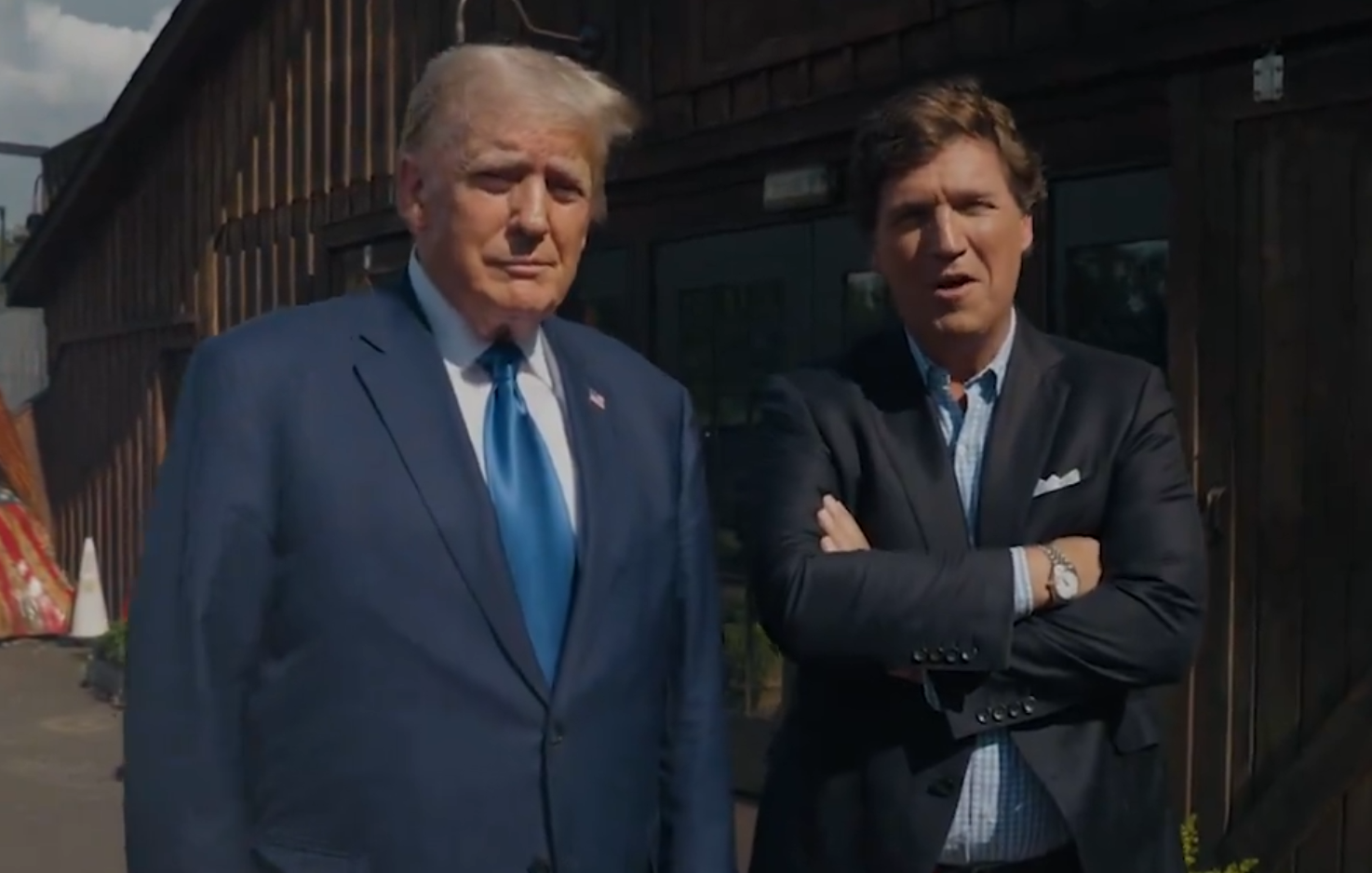In the business world, one of the cardinal rules is that it’s better to under-promise and over-deliver than to do the opposite. By that measure, both Donald Trump and his Aug. 23 interviewer, former Fox News pundit Tucker Carlson, failed. Carlson’s Trump interview was decidedly softball, and the former president was notably vague with many of his responses. But is the relentless legal intimidation now preventing Trump from getting too specific on certain topics of conversation? Have we reached the point when the man who is most likely to challenge Joe Biden in 2024 can’t say certain things because those words might be used against him?
Few of Carlson’s questions were especially intriguing or challenging. One could argue that a journalism student could have done a better job. Then again, to be fair to the once-dominant cable news host, perhaps his agenda was not to pin down Mr. Trump on policy issues but to allow him the space to express his opinions on a wide range of topics. Certainly, Carlson has in the past demonstrated a great deal of skill in steering an interview and soliciting important information from his interviewees.
Trump Interview Suppressed by Lawfare?
Lawfare is defined as “the use of legal action to cause problems for an opponent,” according to the Cambridge Dictionary. Obviously, the threat of legal consequences can have a chilling effect on the exercise of free speech. Now facing four indictments, Donald Trump finds himself in the position where anything he says in public might – and probably will – be used against him in court by those who are determined to prevent him from returning to the White House. For that reason, one must assume, Carlson deliberately avoided questioning Trump about the legal issues he faces.

Tucker Carlson & Donald Trump Screenshot
The subject matter of the interview spanned a variety of topics. Why did Mr. Trump choose not to participate in the first of the GOP primary debates? Trump’s answer: “Do I sit there for an hour or two hours or whatever it’s going to be and get harassed by people that shouldn’t even be running for president?” When asked to name names, though, the Republican front-runner was initially reluctant to oblige. He did subsequently mention former Arkansas Governor Asa Hutchinson, who, during the GOP debate, declined to say that he would support Trump as the nominee as per the pledge each candidate signed prior to taking to the stage. Since Carlson’s Trump interview was pre-recorded, the former president could not have known this fact when he sat for the interview.
Trump also mentioned New Jersey Gov. Chris Christie, saying that the latter wanted a job in his administration, but he felt he couldn’t trust him. Christie has been a Trump critic since at least 2021.
Did Jeffrey Epstein kill himself? Trump thinks he probably did but, to Carlson’s amusement, conceded that a case could be made that Epstein’s death in prison was no suicide. Like a great many other Americans, Tucker Carlson believes Epstein was murdered because, as Trump acknowledged, the playboy and suspected sex trafficker had a lot of dirt on many famous people.
Much of the rest of the interview centered around Trump’s current struggles and the outcome of the 2020 presidential election. Disappointingly, very little of it focused on Trump’s agenda should he prevail in 2024. However, the former commander-in-chief did say that his main priority would be stopping the flood of illegal immigration into the United States that has gotten almost entirely out of control since Joe Biden first occupied the White House.
It was not the most inspiring of interviews, but Trump is so far ahead of his Republican challengers at this point that it might not matter. What should concern lovers of liberty is that a main contender for the presidency of the United States of America should feel compelled to carefully choose his words.

